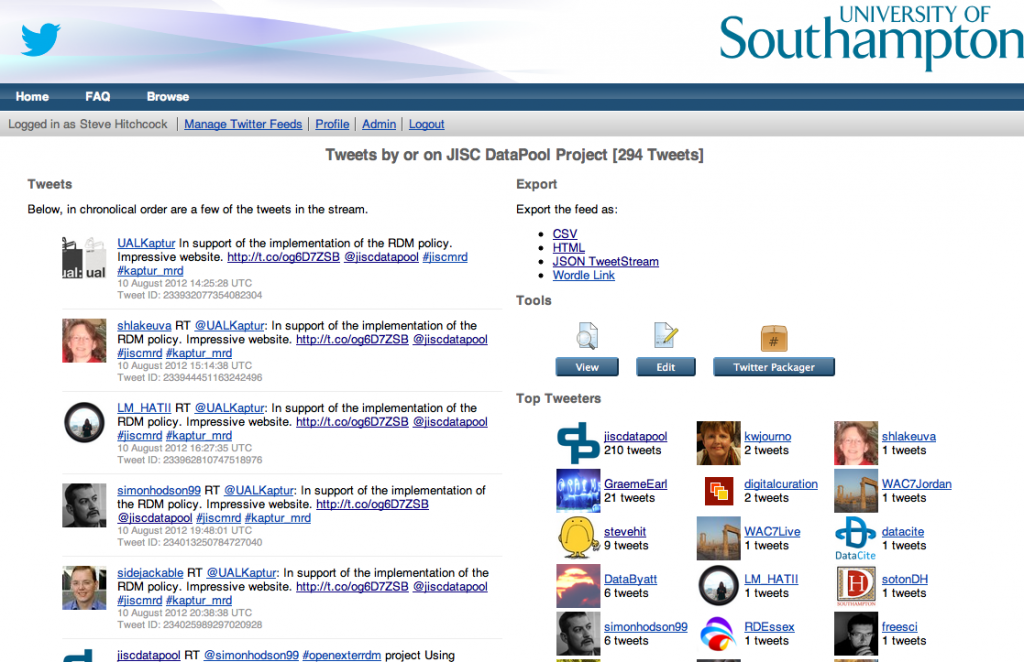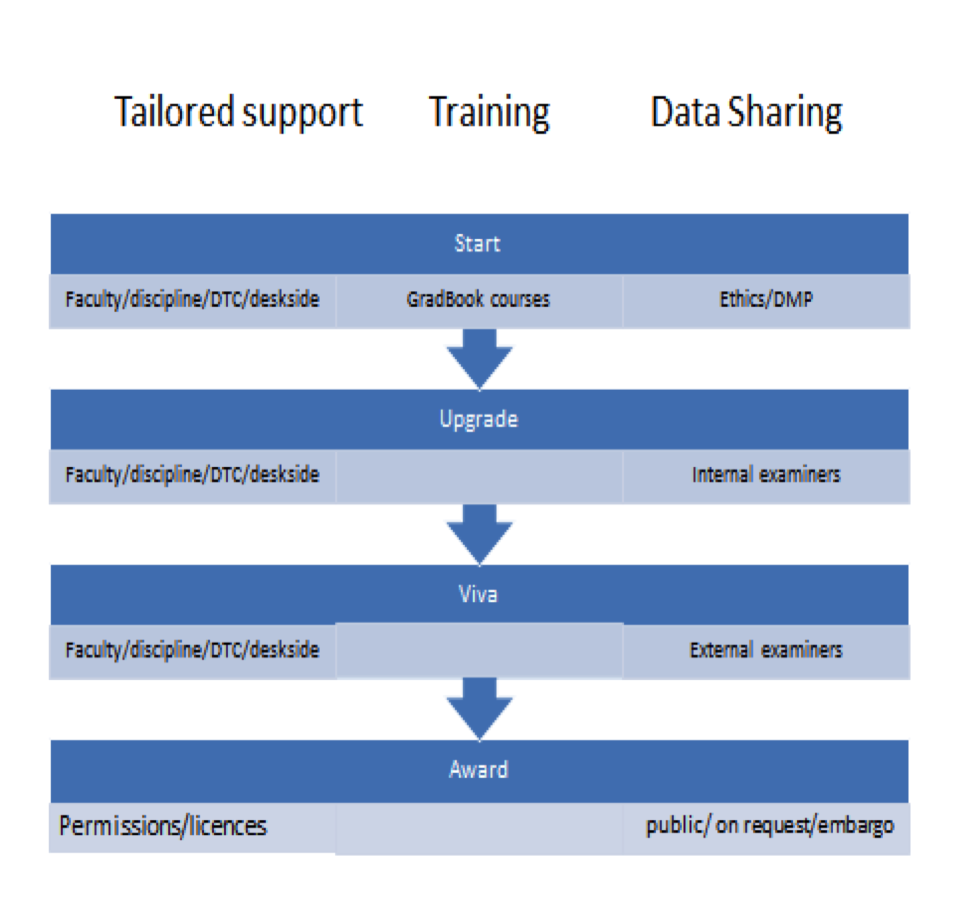DataPool Steering Group, third meeting
There are moments for a project to be steered, and others when the results of steering come to the fore. This was the case for the third and final Steering Group meeting – at least in the context of DataPool if not of research data management at the University of Southampton – held on 12 March 2013. Another well attended meeting testified to the ongoing commitment to continue this work across the university beyond the end of the DataPool project, which completes its term of JISC funding at the end of March.
As with other posts in this series on the project Steering Group meetings, we present a record of these meetings based on copies of documents made available to the group prior to the meeting, where possible.
Collected documents for 3rd Steering Group meeting
- Agenda, Steering Group meeting, 12 March 2013
- Minutes of previous Steering Group meeting, 12 November 2012
- Progress Report by Wendy White, DataPool PI
From the Introduction to the Progress Report: “We will take the opportunity with this final Steering Group update to highlight key areas of activity over the last period and illustrate themes for sustainability as we approach the mid-term of the 10 year roadmap (for research data at Southampton).
“Almost all aspects of the project have required collaboration. This has been true of the development of policy, joint work to review storage and investment priorities, training design and delivery, research data management planning and support services and iterating technical developments. To help support on-going collaboration in the next phase of the roadmap some of the responsibilities as PI of this project are now formally embedded in my role to continue to take initiatives forward and lead co-ordination of services. This reflects an institutional commitment to ensure that responsibility for research data management is reflected in a range of existing roles and not handled as adjunct activity.”
Case study reports
Case studies produced by DataPool were circulated prior to the meeting in draft or summary form. If linked here these will point to complete final versions. If not linked try the case studies tag for updates.
- JISC DataPool Imaging Case Study, Executive Summary
- Integrated Modelling of European Migration Database Case Study
- Collecting and archiving tweets: a DataPool case study

Screenshot of Tweepository: jiscdatapool tweet collection, from the Collecting and archiving tweets case study
Members of the steering group present at the meeting (University of Southampton unless otherwise indicated): Wendy White (Chair, DataPool PI and Head of Scholarly Communication), Philip Nelson (Pro-VC Research), Adam Wheeler (Provost and DVC), Mark Brown (University Librarian), Helen Snaith (National Oceanography Centre Southampton), Mylene Ployart (Associate Director, Research and Innovation Services), Sally Rumsey (Digital Collections Development Manager at The Bodleian Libraries, University of Oxford), Oz Parchment (iSolutions), Les Carr (Electronics and Computer Science), Simon Cox (Engineering Sciences), Jeremy Frey (Chemistry), Simon Coles (Chemistry, case presenter), Gareth Beale (Archaeology, case presenter) Dorothy Byatt, Steve Hitchcock (DataPool Project Managers). Joined by teleconference: Louise Corti (Associate Director, UK Data Archive). Apologies from: Graham Pryor (Associate Director, Digital Curation Centre).

